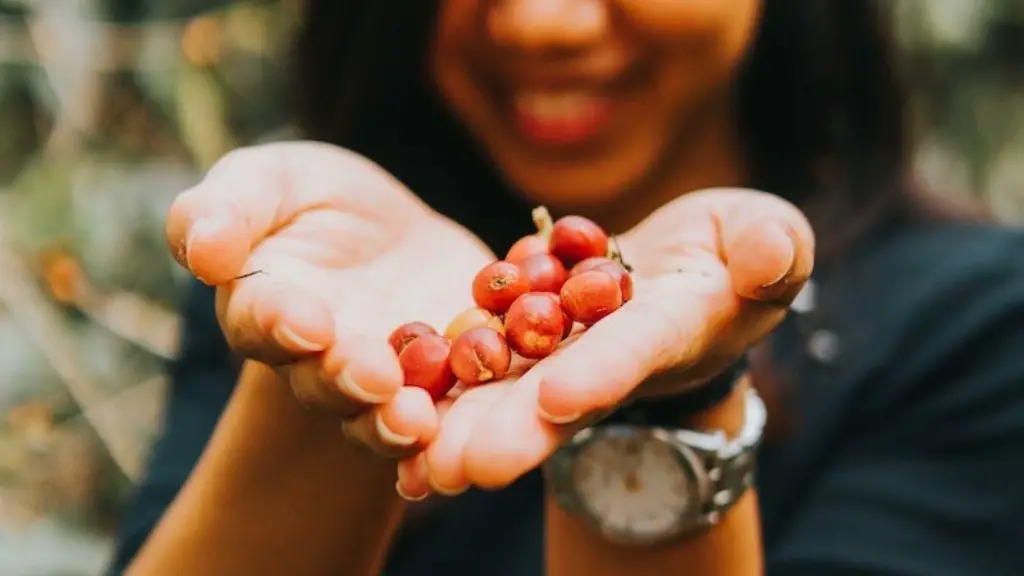Coffee in the morning
Many people are used to drinking coffee first thing in the morning. It’s their favorite start of the day, their ritual. But what happens when you’re scheduled to have blood work done at the lab later that day? Should you be drinking your morning cup of joe before giving blood, or is it best to skip it?
Drinking coffee before blood work can range from being totally safe to posing a risk depending on the type of sample being taken. It all depends on the test and the method being used to collect the sample. Some tests are unaffected by caffeine, but for others it can interfere with the results, making them inaccurate.
If it’s a general blood test, such as a complete blood count (CBC) or a cardiac enzyme panel, it’s generally safe to have coffee beforehand. Caffeine doesn’t affect the accuracy of these tests. That said, it’s still possible that caffeine can interfere with other tests such as those measuring blood glucose, cholesterol or triglycerides levels.
So it’s a good idea to check with your doctor or healthcare provider before you have the test. Most doctors will tell you not to drink any caffeine for at least 12 hours before the test. Some will even tell you not to drink any for 24 hours. This is because caffeine can affect the metabolism of certain substances, interfering with the test results.
You should also make sure you follow your doctor’s instructions for fasting before the test. If your doctor says to fast for 12 hours before the test, you should do it. Fasting for 12 hours before a test is generally recommended to ensure the most accurate results.
In general, it’s best to be safe and to talk to your doctor or healthcare provider before having any blood work done. They’ll be able to tell you what you should and shouldn’t do before the test. Following their advice will help ensure that your results are accurate.
How caffeine affects your body
Caffeine is the most widely consumed psychoactive substance in the world. It’s found in energy drinks, coffee, tea, and many other beverages. When consumed in moderate amounts, it can have positive effects on mood, energy and alertness. But how does caffeine affect your body when it comes to blood work?
Caffeine has been found to increase cortisol and epinephrine levels in the body. Cortisol is a stress hormone that can affect cholesterol levels, while epinephrine is a hormone that affects blood sugar. Thus, drinking caffeine can potentially lead to inaccurate readings for tests that measure these substances.
Caffeine can also cause temporary dehydration, which could affect the accuracy of certain tests. For example, if a urine sample is being taken, dehydrated urine will produce a lower reading than it should. This can result in inaccurate test results.
In addition, caffeine can increase blood pressure, heart rate and respiration. While these changes are usually short-term and reversible, they can interfere with some tests. For example, if you’re getting an ECG or other test that measures your heart, the results could be affected.
Finally, caffeine can increase the production of stomach acid, which could interfere with certain tests that measure stomach acid levels. This is why it’s important to talk to your doctor or healthcare provider before having any blood work done.
Potential side effects
Although nausea and vomiting aren’t common, drinking caffeine before blood work can cause these side effects in some people. This is because caffeine can increase stomach acid levels and this can lead to nausea and vomiting.
In addition, caffeine can increase anxiety levels in some people. So if you’re a nervous person normally, it might be best to avoid drinking caffeine before having blood work done. This is because the anxiety may cause your heart rate to increase, resulting in inaccurate test results.
Finally, caffeine can lead to headaches in some people. If you’re prone to headaches or migraines, it might be best to ask your doctor or healthcare provider if it’s OK to have caffeine before having blood work done.
Alternatives
If you can’t have caffeine before blood work, don’t worry. There are still plenty of alternatives available. For example, you can try drinking herbal tea or decaffeinated coffee. These options still provide the same pleasant taste, but without the caffeine.
You can also try drinking other non-caffeinated drinks such as fruit juice, smoothies, or even water. These drinks can help to keep you hydrated and can provide other vital nutrients to your body.
Finally, you can try light exercises or stretching before giving blood. These activities can help calm you down, reducing your anxiety levels and making it easier to focus.
Expert opinion
Most experts agree that it’s best to avoid drinking caffeine before giving blood. According to the American Society of Clinical Pathology, it’s recommended that you avoid drinking any caffeine for at least 12 hours before giving blood. This will ensure that the test results are accurate.
The American College of Clinical Pathologists also advises that you should drop the caffeine for at least 24 hours before giving blood. If you’re taking a specific test that is known to be affected by caffeine, it’s best to avoid it for 48 hours before the test.
Final thoughts
In the end, it all comes down to personal preference. Some people may choose to have caffeine before blood work, while others may decide it’s best to avoid it. If you’re unsure, it’s best to talk to your doctor or healthcare provider. They’ll be able to give you personalized advice to help ensure that your test results are accurate.
Finally, remember that even if you do have caffeine before blood work, it doesn’t mean the results are automatically invalid. It all depends on the type of test and how it is affected by caffeine. So if you do have caffeine before a test, talk to your doctor or healthcare provider to make sure your results are still accurate.




